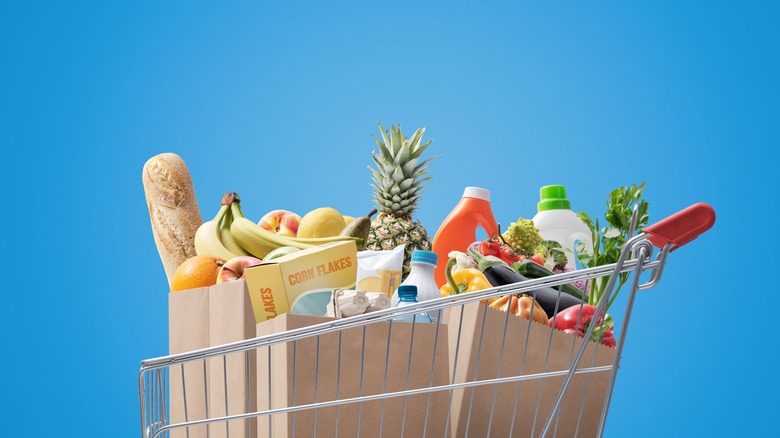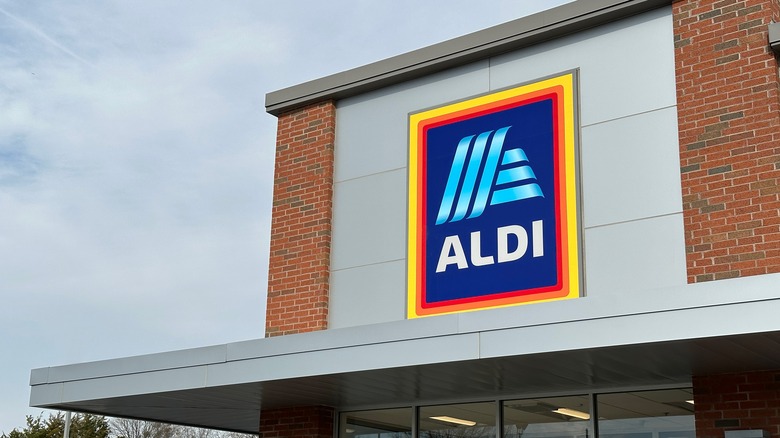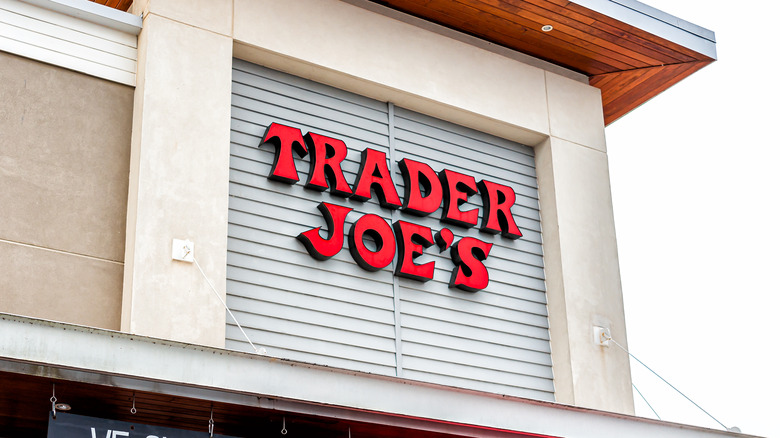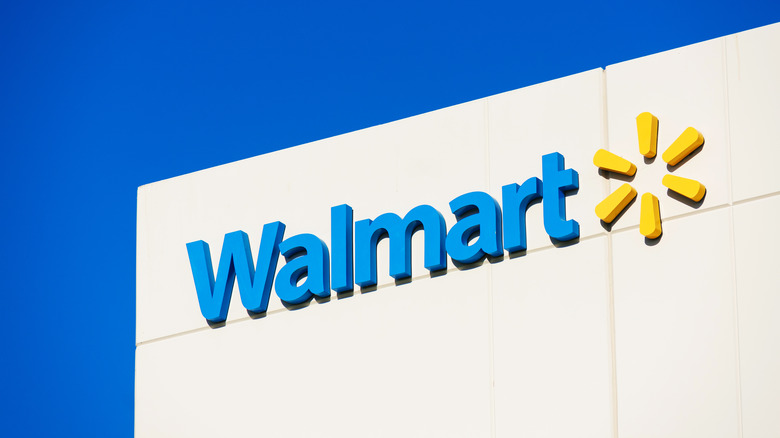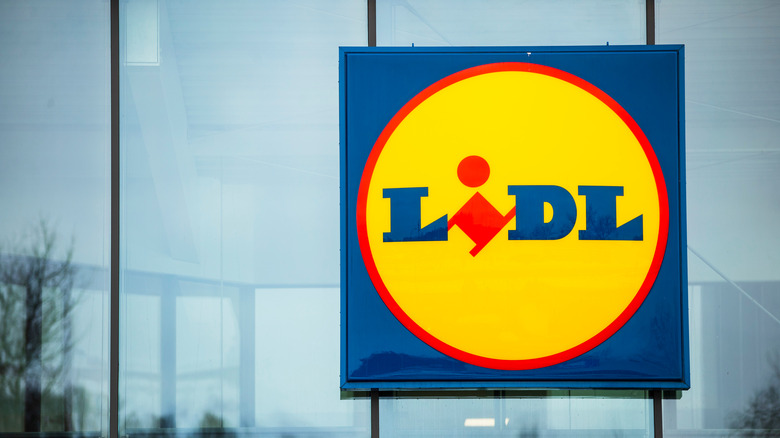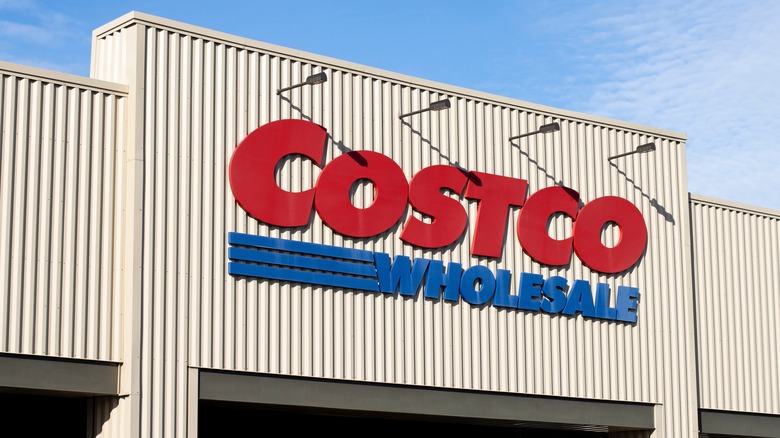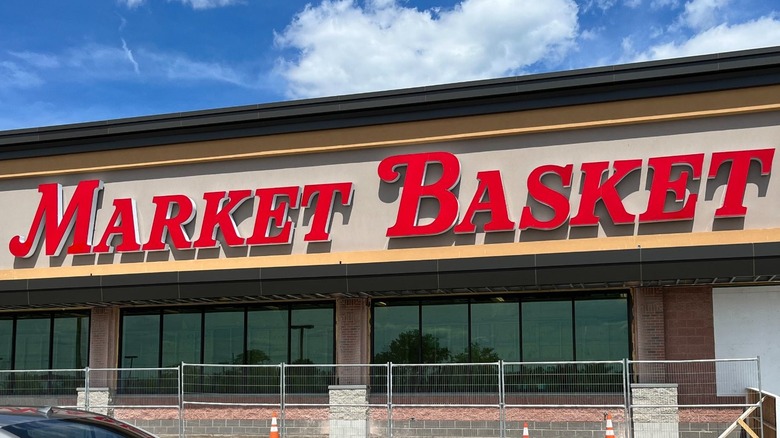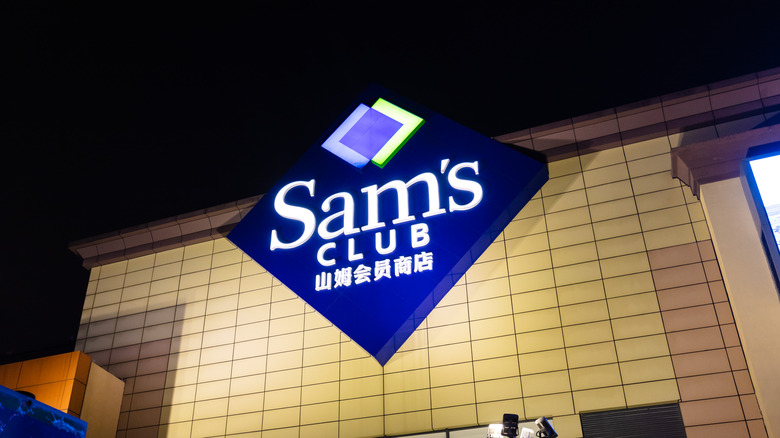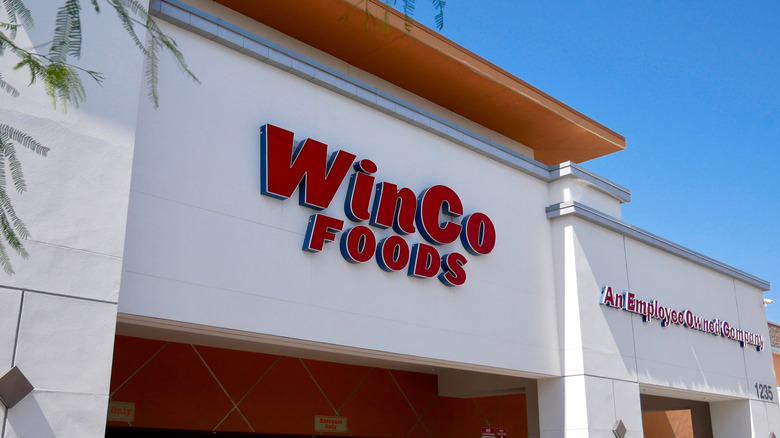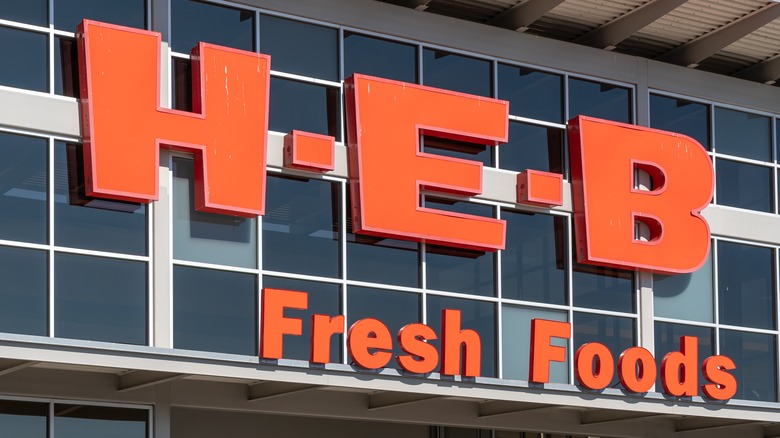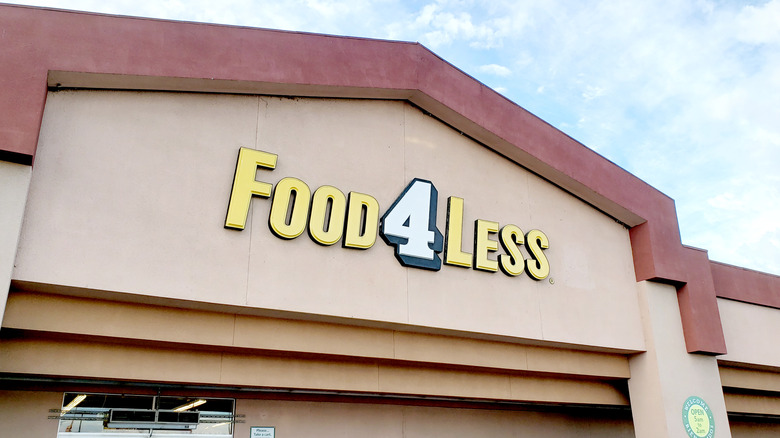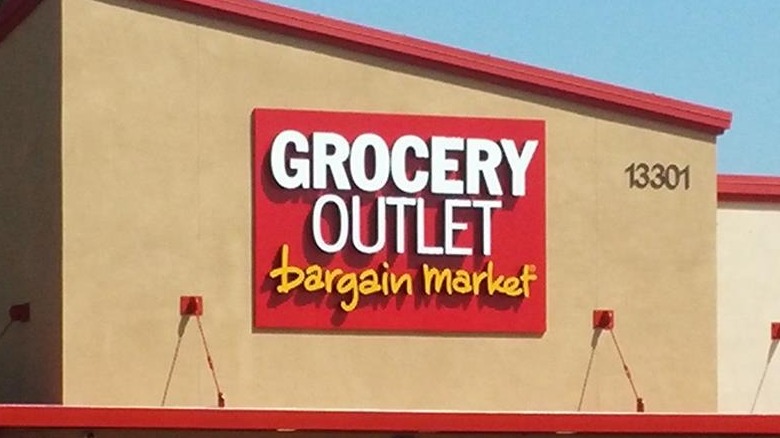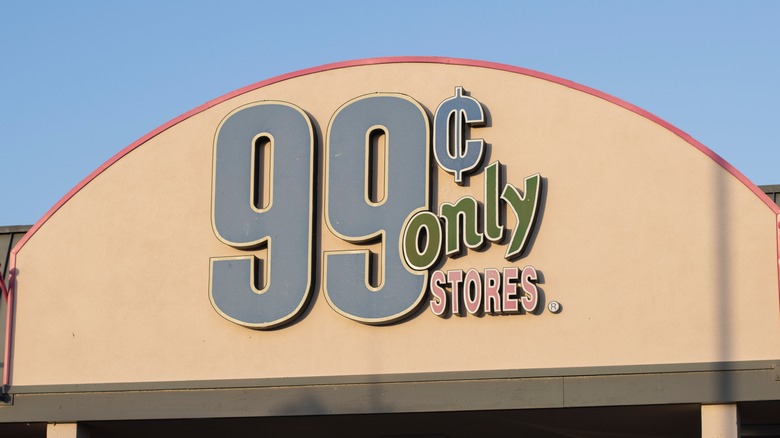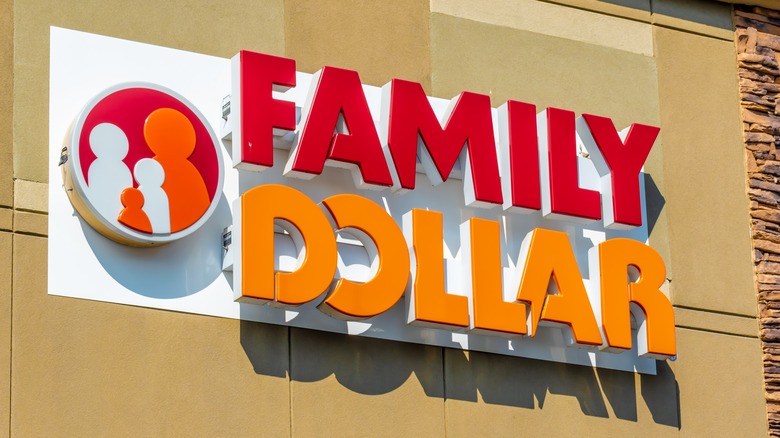13 Most Affordable Grocery Stores In 2023
Let's face it, going to the grocery store these days can get expensive. As prices continue to rise, more and more of us are wondering how we can save some money at the checkout without having to sacrifice the quality of food we feed ourselves and our families. Of course, you can always just buy less, but none of us want to have to cut back drastically on our grocery store purchases — especially if we were already pinched when it comes to food costs before prices started to skyrocket.
That's why it's so important to understand where to buy groceries that won't break the bank. We've rounded up some of the most popular national and regional grocery chains in the country to give you a better idea of where you should be shopping if you want to save your hard-earned cash. These stores use a variety of techniques to ensure you're getting the best possible prices. Let's take a look at where you should be shopping for the best value buys.
Aldi
If you want to save money on your groceries, there's perhaps no better store to shop at than Aldi. You'll find Aldi locations across the country and overseas, all of which guarantee competitive prices compared to the other grocery stores in your area. So, how do they do it? There are a few ways the chain keeps its prices so low. First of all, Aldi doesn't carry many name-brand products. Instead, the chain focuses on selling its own store-brand products. These items are often cheaper but many report that these goods are nearly identical to the name-brand versions of the same products, which makes it a no-brainer to shop here if you're trying to save money but don't want to sacrifice when it comes to taste.
Additionally, Aldi stores tend to be smaller than the average supermarket, which means the selection is more limited and the staff is streamlined. Since you have to bag your own groceries and take your own cart back to the store, you don't have to pay for those services through the price of your groceries. Sure, the shopping experience at Aldi is a little different than what you may be used to at other grocery chains, but the low prices are totally worth it in our book.
Trader Joe's
Trader Joe's is another one of those super-popular, more affordable grocery chains that customers tend to flock to on a regular basis. If you like the feel of Aldi but are in the market for more specialty products, you may want to make your way to Trader Joe's. The store is similar to Aldi in that it doesn't offer many brand-name products, instead stocking its own unique offerings. Some of these products have become cult favorites amongst Trader Joe's shoppers, so you're not sacrificing much in terms of quality by shopping at this store. Additionally, the chain keeps its operational costs low by building smaller stores that require fewer staff members to manage.
Since it doesn't offer coupons and run ads, you're not paying for all those extra incentives and advertisements. Rather, customers know that they're almost always getting a pretty decent deal when they decide to shop at Trader Joe's. There are currently locations in 42 states (plus Washington D.C.) and if you live in an urban or suburban area, chances are you've got a Trader Joe's somewhere near you.
Walmart
Walmart has long been known as a place where it's possible to snag cheap groceries. But why are the store's products so cheap compared to other, similar stores? There are a variety of factors that contribute to the cheaper-than-average prices. Low operational costs are one such strategy, but so is lack of competition. Often, you'll find Walmarts in places where there aren't many other retailers to compete with. In smaller towns and more rural areas, Walmart may be one of the few places in town where it's possible to snag groceries. Because the local population depends on the store, Walmart has a reliable customer base. This customer loyalty means that they don't have to charge quite as much for its food and other products.
However, some of the chain's affordability factor comes from the fact that it doesn't pay its employees very much. Human Rights Watch has outlined major issues with Walmart's labor practices, including encouraging employees to work off the clock and refusing to grant overtime.
Lidl
Lidl is a grocery chain that was founded in Germany but can now be found in various towns and cities across the U.S., and if you've ever been before, then you know that the chain offers some seriously low prices. Like so many of the other chains on this list, this store keeps its prices low by limiting its name brand offerings and providing customers with store brands instead. Additionally, it tends to stock products that people use on a regular basis — think pasta, canned tomato paste, and produce staples like cabbage and carrots — that often move in and out of the store pretty quickly. There aren't many products that are going to sit on the shelf for a long time, which means that the company isn't waiting around for a return on investment.
Plus, it takes less labor to run a Lidl than it would to operate a larger, more expansive grocery store. Fewer products means less need for a ton of workers, and the fact that the store displays its products in the boxes they're shipped in is just one of the ways the store cuts its labor costs.
Costco
For those with big families (or just a lot of roommates), shopping at Costco seems like a no-brainer. The store is famous for its low prices on bulk goods like toilet paper along with some of its most celebrated deals, like Costco's $4.99 rotisserie chickens that bring customers back. The chain cuts down on costs by keeping its stores relatively simple — you'll notice the bare-bones design that's more about utility and function than it is about style and ambiance.
Meat and protein plus many prepackaged items are cheaper than average at Costco, even when you're opting for brand name items over the in-house Kirkland brand. If you know you're going to use these products anyway (or you just remember to freeze them before you use them), doing a monthly shop at Costco might just save you some of your hard-earned cash. Of course, we can't forget about the membership costs — you have to have a Costco card to shop at the retailer. (Starting at $60 per year, membership fees accounted for $4.2 billion in 2022 revenue, according to the company.) But the savings you'll accumulate throughout the calendar year should more than make up for that cost.
Market Basket
If you're lucky enough to live in the Northeast, you may just have a Market Basket near you. The regional grocery chain is a fan favorite for those who love to save money on their grocery bill because of its surprisingly low prices. One of the main ways the company keeps its prices so low is by making sure it stays debt-free. While this may seem like a logical move, it's one that most companies — including most grocery chains — don't stand by.
Another way Market Basket offers such competitive prices is by offering pretty much the same goods at all of its locations. Because of this strategy, it can buy in bulk, ensuring a lower wholesale price. It can then pass those savings on to its customers, who keep going back to the store to take advantage of those low prices. One of the main benefits of shopping at Market Basket is the fact that you can get a lot of your favorite name-brand products for significantly cheaper than you would find them at other grocery stores. If you've never gone to a Market Basket before and you happen to live near one, you have to check it out — you may just be shocked at how low the prices are.
Sam's Club
Like Costco, Sam's Club is a membership grocery store with a focus on selling products in bulk. When you're shopping this way, you may be spending more upfront, but generally, you're going to save money in the long run (as long as you use what you buy). Of course, the membership cost of shopping at Sam's Club helps the company offer lower prices. Although Sam's Club offers its membership prices for less than Costco does, you'll generally find lower prices on goods at Costco. But that doesn't mean you can't get a good deal at Sam's Club too.
Particularly if you're a frequent shopper, you can save significantly on your annual grocery spending by shopping at Sam's Club. In fact, you can even save more than you would by shopping at Walmart, which is the parent company of Sam's Club. If you're looking for a Costco alternative, Sam's Club is a solid way to go.
WinCo Foods
WinCo is another celebrated low-cost grocery store with locations that can be found in the West and Midwest, with prices that are sometimes below what even Costco can offer. But why is the chain so cheap? First of all, the chain buys a lot of its products directly from producers. By not going through a wholesale middleman, WinCo can get those products for less money, and it then passes those savings on to its customers. But the store has another tactic under its belt: It doesn't accept credit cards. Oftentimes, processing credit cards can be expensive for a store, and by only accepting other forms of payment, WinCo doesn't have to pay that premium price.
The upside? You don't need a membership to shop at WinCo like you do at stores like Costco and Sam's Club. The downside is that you'll have to remember to bring a form of payment that's not a credit card.
H-E-B
Ask any Texan what their favorite grocery stores are, and chances are that they'll mention H-E-B. This chain has a cult following amongst citizens of the Lone Star State, and it's no wonder why. In addition to providing its customers with a wide array of top-notch products, the store also boasts relatively low prices compared to many other chains. When it comes to produce, H-E-B can offer much lower costs than many stores because it prioritizes working with local producers. Since it's generally not shipping in produce from around the world, its transportation costs are significantly lower than those of many other grocery stores. This in turn lowers the cost of fruits and vegetables for customers, who keep coming back because of the solid prices. This high rate of turnover makes the company money while helping its customers cut their grocery costs.
The only downside is the fact that you won't find H-E-B in the other 49 states, though there are over 60 locations in Mexico. However, if you're in Texas and you haven't yet checked out the popular chain, you need to shop there ASAP — it may just change your budget grocery game for the long haul.
Food4Less
You're not going to find Food4Less everywhere — the company, which is owned by grocery magnate Kroger, only operates in three states (Indiana, Illinois, and California). But if you do happen to live near one of the chain's locations, you can benefit from the lower-than-average prices you'll find there. You'll want to take a look at the store's weekly ads because that's where you'll often find the very best deals. Like a lot of discount stores, you'll have to bag your own groceries, but we think it's worth it for the lower cost.
A lot of the time, these cheaper stores don't offer pharmacies or household items like cleaning products, but you'll find these amenities and more at Food4Less, which makes it a great option for people who want to get all of their shopping done at one spot.
Is Food4Less the most luxurious place you've ever shopped for groceries? No. But it will get you out the door with a few bags of groceries for considerably less than you would pay at most grocery stores.
Grocery Outlet
Grocery Outlet is one of those stores that you have to shop at at least once if you love finding fantastic deals on groceries. There, you'll find consistently low prices to help you cut your grocery budget for good. As the name suggests, this chain is an outlet. Basically, when a producer makes too much of a product that it can't otherwise sell, it contacts Grocery Outlet, which then buys the product for a reduced price. That's how the store passes those savings on to you — it pays less for its products so you can too. Unlike some budget grocery chains, you'll find different products at every Grocery Outlet you go to, depending on what that particular store has access to.
Concerned you won't be able to find what you need at Grocery Outlet? Don't worry — the store also stocks fresh produce and most other supermarket staples so you'll always be able to find the essentials like eggs and milk.
99 Cents Only Stores
You're not going to find many grocery stores that offer prices lower than 99 Cents Only Stores. When the company was started, everything was offered for only 99 cents. Of course, times have changed, and now, the name of the store is a slight misnomer — sometimes, you'll pay more than 99 cents for a product there ( and sometimes, you'll also pay less). Still, you can almost guarantee that you are going to get a great deal when you shop at these stores, which are currently only found in four states.
You can shop for produce here as well as a variety of other grocery products, although it can sometimes be difficult to find exactly what you're looking for. On the bright side, it's kind of a treasure-hunting experience — you'll never know what you'll find for cheap when you set foot inside one of these stores. If you're the kind of person who's always on the hunt for a good deal, 99 Cents Only Stores undoubtedly make for an exciting shopping experience.
Family Dollar
When you're pinching your pennies, going to a traditional grocery store may not be the most cost-effective way to buy groceries. Instead, heading to a dollar store like Family Dollar may just be the way to go. The popular chain offers some of the best food prices around, and it's often accessible in places where traditional grocery stores are not. Recently, the chain decided to lower its prices even further to compete with other dollar stores like General Dollar. Company executives hope that this will attract more budget-minded shoppers to its stores.
How are the prices at Family Dollar so low? Widespread reports of understaffing and cluttered stores indicate that the chain may not be spending as much on labor costs as it should, which probably isn't ideal on many fronts. However, if you need to get groceries for cheap, it's an option that you may want to explore. Many products can be found for little more than a dollar, potentially helping you cut your food costs.
